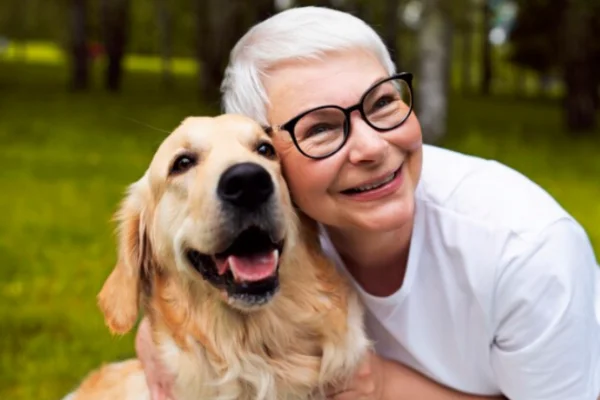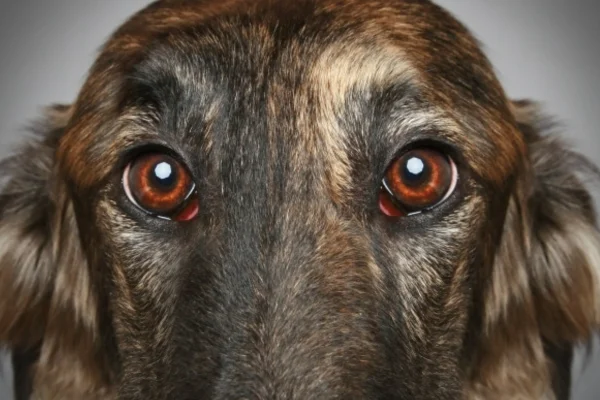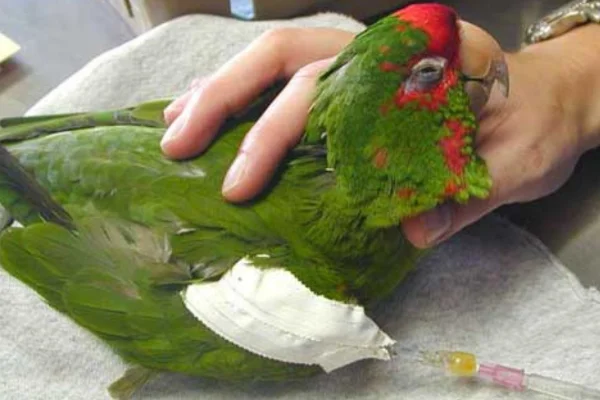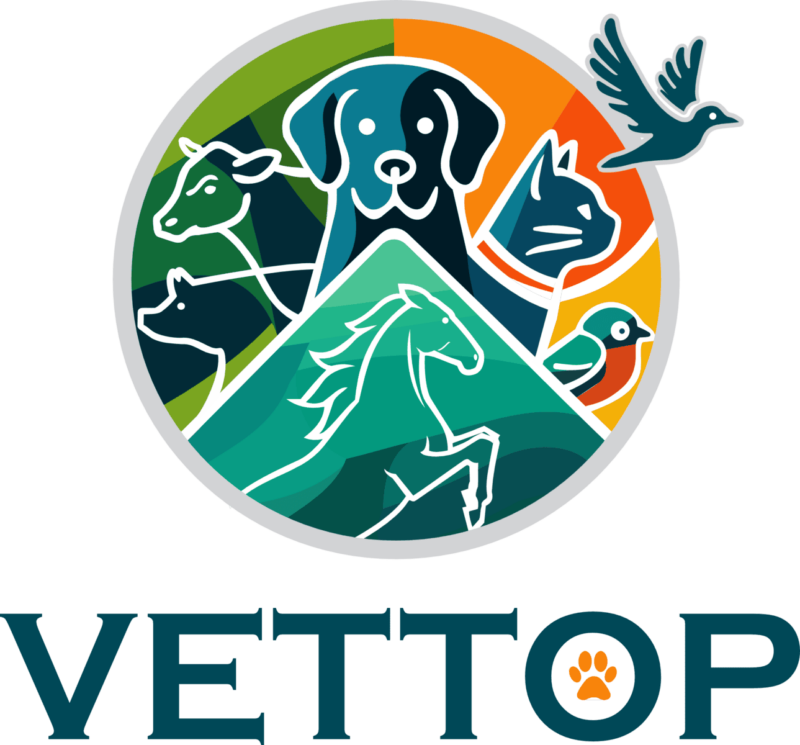Introduction to Puppyhood
A dog's age is a curiosity that intrigues many owners. Understanding this canine metric not only strengthens the bond with the pet, but also helps with proper care throughout the animal's life.
Let's explore this theme by comparing the age of dogs with that of humans.
Understanding Canine Mathematics
Traditionally, calculating a dog's age used to be simple: multiply the dog's age by seven to get the equivalent human age. However, new research has revealed a more accurate and interesting approach to this calculation.
Contents

How to Calculate Your Dog's Age
There are crucial factors to consider when determining your dog's age. Modern tools, such as conversion tables, help to make this calculation accurately, taking into account individual characteristics and the animal's breed.
But here's a table comparing the age of dogs with the age of humans that might help you.
| Dog's age | Small Breed (up to 20kg) | Medium breed (20-40kg) | Large breed (over 40kg) |
|---|---|---|---|
| 1 year | 15 years Human | 15 years Human | 15 years Human |
| 2 years | 24 years old | 24 years old | 24 years old |
| 3 years | 28 years old | 28 years old | 28 years old |
| 4 years | 32 years old | 32 years old | 32 years old |
| 5 years | 36 years old | 36 years old | 36 years old |
| 6 years | 40 years | 42 years old | 45 years old |
| 7 years | 44 years old | 47 years | 50 years |
| 8 years | 48 years old | 51 years old | 55 years old |
| 9 years | 52 years old | 56 years old | 61 years old |
| 10 years | 56 years old | 60 years old | 66 years |
| 11 years | 60 years old | 65 years old | 72 years old |
| 12 years old | 64 years old | 69 years old | 77 years old |
| 13 years | 68 years old | 74 years old | 82 years old |
| 14 years old | 72 years old | 78 years old | 88 years old |
| 15 years | 76 years old | 83 years old | 93 years old |
This table shows an approximate comparison between dog age and human age, considering different sizes of dog breeds. Remember that this comparison may vary according to the breed and individual characteristics of each dog.

Dog Breeds and Their Variations
Different breeds age differently. Understanding these differences is fundamental to proper care. Some breeds age more quickly than others, impacting on their health and well-being needs.
Special Care at Different Stages
As dogs grow, their needs change. Care varies between puppies, adults and the elderly, requiring adaptations to ensure a healthy and happy life for the pet.
Signs of Ageing and Health
Identifying the signs of ageing in dogs is essential to ensuring their well-being. Some specific indicators reveal the passage of time and can even point to health problems.
When our four-legged friends start to age, certain signs become evident. Changes in behavior, such as decreased energy, difficulty getting up or moving around, as well as changes in physical appearance, such as a duller coat, can all be signs of aging.
In addition, health problems such as arthritis, dental problems and loss of hearing or sight tend to appear more frequently in older dogs.
Being aware of these signs can help detect health problems early on, allowing for appropriate veterinary care and interventions to ensure your pet's comfort and quality of life.
Mythology vs. Science: Common Myths about the Age of Dogs
Many popular beliefs about the age of dogs are based on myths and misconceptions. It's time to debunk these misconceptions and explore the scientific truths behind canine ageing.
One of the most common myths is the famous rule that one year of a dog's life is equivalent to seven human years. However, this relationship is not so simple. The age of dogs varies according to breed and size, which means it's not a linear conversion.
Smaller dogs tend to live longer than larger ones, and different breeds have different aging rates. Another misconception is the belief that elderly dogs don't need as much exercise.
In fact, exercise is fundamental to the physical and mental health of older dogs, although it may need to be adjusted according to the physical limitations that may arise with age.
Important Considerations for a Dog's Longevity
Diet, exercise and veterinary care play crucial roles in promoting a long and healthy life for your dog. Understanding these elements is key to ensuring your pet's longevity and well-being.
A balanced diet suited to your dog's nutritional needs at every stage of life is essential. In addition, ensuring that they receive regular exercise, even adapted to their age, is crucial to maintaining their physical and mental health.
Regular veterinary care is also essential. Routine examinations and preventive care help to detect health problems earlier and allow for more effective treatments.
Attention to these three pillars - diet, exercise and veterinary care - is fundamental to promoting a long, healthy and happy life for your canine friend.
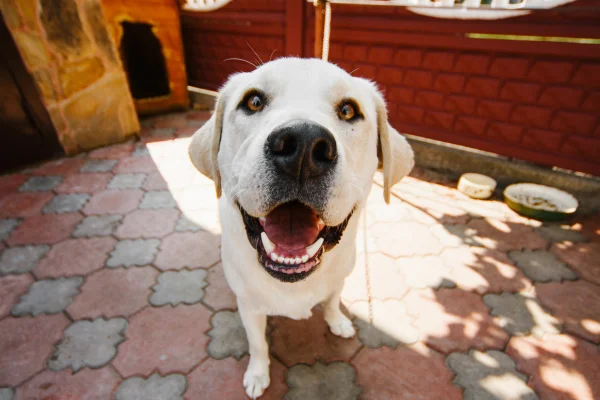
Puppy Age FAQs
- How do I calculate my dog's age accurately? Calculating your dog's age accurately involves taking into account the stage of life he is in. Modern methods take into account the dog's breed and size
- Is there any relationship between a dog's size and its aging? Yes, there is a relationship between a dog's size and its aging. Generally speaking, dogs of larger breeds tend to age more quickly than those of smaller breeds
- What are the most common signs of ageing in dogs? Common signs of aging include changes in coat, decreased energy, dental problems, difficulty walking and changes in behavior.
- Is it true that smaller breeds live longer than larger breeds? Generally, yes. Smaller breeds tend to live longer than larger breeds.
- How should I adapt my dog's diet as he gets older? Your dog's diet should be adapted as he gets older. Consulting a veterinarian is essential to adjust the diet according to the animal's specific needs.
Conclusion: Puppyhood
Calculating a dog's age goes beyond simple multiplication. It's a way of understanding and taking better care of your faithful companion. Valuing your dog's health and well-being is the key to a happy and lasting relationship.
Thanks for stopping by, check out our other work too
https://vettopbr.com/tosse-em-caes/

